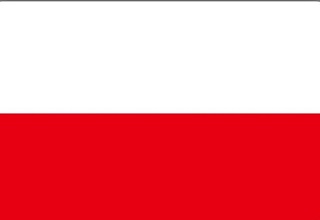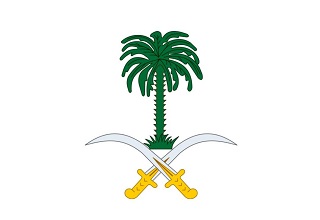Regarding the Inspection and Quarantine Requirements for the Importation of Ethiopian Coffee Bean
Following our nation's pertinent laws, regulations, and the provisions established jointly by the General Administration of Customs of the People's Republic of China and the Ministry of Agriculture of the Federal Democratic Republic of Ethiopia, we are immediately authorizing the import of Ethiopian unroasted coffee beans provided they adhere to the criteria below:
I. Regulatory Framework
1. Biosecurity Law of the People's Republic of China.
2. Law on Entry and Exit Animal and Plant Quarantine of the People's Republic of China* and its enforcement rules.
3. Food Safety Law of the People's Republic of China* and its enforcement rules.
4. Import and Export Commodity Inspection Law of the People's Republic of China* and its accompanying rules.
5. Safety Management Procedures for Imported and Exported Foods in the People's Republic of China.*
6. Phytosanitary Protocol for the Export of Ethiopian Unroasted Coffee Beans to China,as agreed between the aforementioned bodies.
II. Description of the Approved Goods
This directive pertains to "Coffee Beans" (in English), derived from dehusked Ethiopian-grown Coffea arabica L. These beans, once outer layers and silverskin are removed, are dried and classified.
III. Recognized Region of Origin
Any location within Ethiopia.
IV. Prohibited Harmful Organisms
Imported coffee beans must be free from:
1. Coffee berry borer (Hypothenemus hampei).
2. Coffee anthracnose fungus (Colletotrichum kahawae).
3. Coffee wilt fungus (Fusarium xylarioides).
4. Field dodder (Cuscuta campestris).
V. Pre-exportation Protocols
1. Enterprise Accreditation.
The Ethiopian Ministry of Agriculture (the Ethiopian Party) shall assess and recommend competent coffee bean production and processing enterprises to the General Administration of Customs of China (the Chinese Party). The latter will then validate and register them.
2. Operational Criteria.
- The Ethiopian Party must oversee the prevention, management, and investigation of the highlighted harmful organisms during cultivation, processing, and storage phases, aligning with global phytosanitary standards. This supervision should be led by experts certified by Ethiopian institutions. The use of pesticides banned by China is strictly prohibited.
- Upon China's request, Ethiopia should furnish records and reports on harmful organism incidents and integrated prevention strategies.
- Coffee bean production and refining must employ measures to discard moldy, infested, or foreign matter contaminated beans. Beans should be devoid of live pests, eggs, soil, weed seeds, plant remnants, or gravel.
3. Packaging and Conveyance Criteria.
- Segregate processed beans from those for other destinations and unprocessed ones to avert cross-contamination. Beans must be packed in pristine, phytosanitary-approved materials. Each pack should be marked "For Export to the People's Republic of China" in English, accompanied by product information, processing establishment, and registration number, either in English or Chinese.
- Prior to dispatch, transportation tools must undergo meticulous scrutiny to inhibit contamination.
4. Product Norms.
Beans must be devoid of any organisms China considers harmful, complying with China's entry phytosanitary and food safety regulations.
5. Pre-departure Inspection and Certification Criteria.
Before export, the Ethiopian Party should oversee inspection and quarantine protocols for beans destined for China. A quarantine certificate should be issued for compliant batches, indicating the processor's name and registration details. The appended declaration should mention: “This batch aligns with the Phytosanitary Protocol for Ethiopian Unroasted Coffee Bean Exports to China and is devoid of pests China deems quarantinable.” Any fumigation specifics, if done, must also be recorded.
VI. Entry Inspection and Quarantine
1. Certificate Authentication.
1)Confirm the quarantine certificate's genuineness and validity.
2)Ascertain its issuance by a sanctioned exporting entity.
2. Goods Oversight.
Inspect and quarantine the beans as per applicable laws, regulations, and guidelines. Conforming batches will be cleared for entry.
3. Non-adherence Procedures.
1)Beans without valid quarantine credentials will either be returned or destroyed.
2)Those sourced from unregistered processors face similar consequences.
3)Batches containing soil will be returned or destroyed.
4)Any beans with organisms China flags as harmful, other live quarantinable pests, or plant remnants, will either be eradicated, sent back, or destroyed.
5)All other discrepancies will be addressed per the appropriate rules.
In cases of deviations, China will notify Ethiopia, potentially revoking the implicated enterprise's export rights until rectifications are confirmed.
VII. Periodic Re-evaluation
China reserves the right to conduct periodic risk assessments, influenced by port inspection outcomes and Ethiopia's harmful organism occurrences. This might lead to revisions in the prohibited organism list and corresponding quarantine actions in consultation with Ethiopia.
This is hereby announced.
General Administration of Customs
October 24, 2023
Amor Wai
Mobile: +86 139 1318 3379
Email: gacc@foodgacc.com






